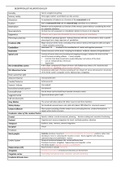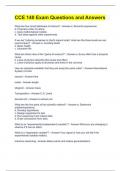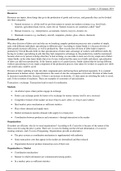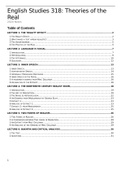Exam (elaborations)
DEOMI Exam 1 Questions And Answers
- Course
- Institution
DEOMI Exam 1 Questions And Answers What are Tuckman's principles of group development Theory? 1. Sequential. 2. Development. 3. Thematic. What are the five stages of group development and which one is probably the most difficult? 1. Forming. 2. Storming (the most difficult). 3. Norming. 4...
[Show more]








